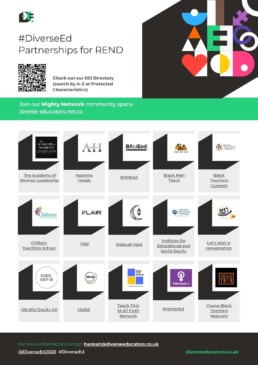A-Z Mental Health in Education
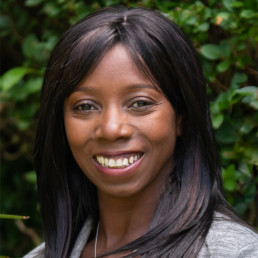
Written by Nicola Harvey
Nicola Harvey is the founder of Harvey Heals Wellbeing Consultancy. She is a trauma-informed Senior Education & Wellbeing Consultant, Clinical Reflective Practice Supervisor, Trainer & Facilitator, and Published Author. Nicola has worked in a range of settings, supporting educators, young people, parents and professionals, and is passionate about diversity and inclusive practice. To find out more about Nicola and her organisation, go to: www.harveyheals.com.
After a well-deserved summer break, students and educators have returned to the classroom. And as we settle back into school routines, there continues to be a focus on mental health and wellbeing.
The impact of the cost-of-living crisis, social disparities, lockdowns, academic performance, and many other factors, continue to take a strain on the wellbeing of students and staff.
According to the Children’s Society’s Good Childhood Report, the likelihood of young people having a mental health problem has increased by 50%, and happiness continues to decline. Now, five children in a classroom of 30 are likely to have a mental health problem. However, despite the statistics, it is becoming harder to access support for children’s mental health and emotional wellbeing.
In addition, Education Support’s 2022 Teacher Wellbeing Index, states 78% of all staff surveyed experienced mental health symptoms due to their work in education. Often related to stress, depression and anxiety, this contributes to the decline in school staff wellbeing.
However, when mental health and wellbeing is at the forefront of a whole school ethos, it can help members of the school community feel valued, psychologically safe, and supported in their surroundings. This is why easily accessible tools and resources promoting positive mental health and wellbeing, need to be available.
To help improve mental health and wellbeing in education, I was invited to produce the content for the A-Z of Mental Health poster on behalf of Optimus Education.
With an inclusive approach, the A to Z of activities outline practical and supportive self-regulation tools for children, young people and adults. I have broken each activity down into small, manageable chunks, tips and advice, to help students and educators feel less overwhelmed, and more equipped to cope with the ups and downs school life. With a mindfulness-based focus, the activities on the poster include:
- asking for help
- developing healthy habits
- improving mood
- increasing self-esteem.
I am delighted with the response, which has been well received by schools, parents, therapists, and a range of professionals across the UK and abroad.
The A-Z of Mental Health poster can be used in a variety of ways, including:
- A calming visual for an anxious student. Ask the student to choose an activity on the poster to help them self-regulate and gradually feel calm.
- During PSHE, as a whole class starter activity. Each week, progress through one or two activities (letters of the alphabet) for the lesson.
- In staff meetings or INSETs – choosing an activity from the poster for educators to do as an icebreaker at the beginning of the meeting or to close the session.
- As a visual guide, prompting students to create their own personalised A-Z posters with helpful activities to support their wellbeing.
Most importantly, as we settle back into school routines after the summer break, the A-Z of Mental Health poster encourages anyone experiencing a range of emotions, to take a break and use the practical mindfulness-based tools to support their wellbeing.
To download your free copy of the poster, click here.
Turn Up, Speak Up and Speak Out
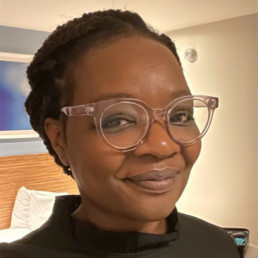
Written by Frances Akinde
Frances Akinde is: a SEND Adviser & Inspector; an AT trainer; an Art Advocate; an Anti-racist schools coach and a ND Champion. She is a former advisory teacher (SEND/SLCN) and Secondary Special Headteacher (Autism). She holds certifications including NPQH, MAEd, NASENco.
During the last weekend of May 2023, I attended the TUC Black Workers conference on behalf of the NAHT (National Association of Head Teachers).
The TUC (Trades Union Congress) is a federation of UK trade unions representing around 5.5 million workers from 48 unions across industries, all committed to collective action. One of the main requirements of affiliation is that-
‘An organisation has a clear commitment to promote equality for all and to eliminate all forms of harassment, prejudice and unfair discrimination, both within its own structures and through all its activities, including its own employment practices.
TUC rules and standing orders | TUC, last updated June 22.
The NAHT joined the TUC in October 2014 under Russell Hobby, who was general secretary at the time. The other education unions that are members of the TUC are the NEU, NASUWT and the NSEAD (a specialist trade union for art, craft & design educators, which I am also a member of), the Scottish union EIS and Welsh union, UCAC amongst others. Out of the four biggest teaching unions, only ASCL is not a member of the TUC.
The TUC holds a number of annual conferences that supplement the general work of the congress. The Black Workers Conference, in particular, focuses on issues and concerns affecting Black workers in the UK. In this context, Black is used as a political term to describe all workers of colour. The conference is used as a platform for Black workers and their trade union representatives to discuss and address issues around racial discrimination, inequality and barriers to employment. It is also a good chance to network and share experiences.
As a member of the NAHT Leaders for Race Equality network, I saw attending the conference as a chance to learn from the TUC’s anti-racist efforts and how this is being applied in the NAHT and other education unions.
In October 2022, The TUC released a report, ‘Going forward: An action plan to build an anti-racist trade union movement’. It states that ‘For our unions to thrive, recruiting Black members and addressing racism at work has to be at the core of our work. This will grow our movement, make it diverse and truly representative of the working class of modern-day Britain.’
From Action plan to build an anti-racism trade union movement | TUC
This Black Workers conference was the first since the action plan was launched. Various motions were presented to build on this commitment, including ones from the NEU and NASUWT.
One of NASUWT’s motions focused on tackling Islamophobia and anti-Muslim hate in all forms within our education system. This is part of their ‘Big Conversation on Racial Justice’ campaign, which was launched in 2021.
NASUWT | Big Conversation on Racial Justice
One of NEU’s motions focused on tackling institutional racism for all workers, building on work already presented in their ‘Anti-racism charter: Framework for developing an anti-racist approach,’ which is based on the testimony of over 1000 Black teachers about the impact of racism in their workplaces.
As well as listening and voting on the motions, I also attended a variety of workshops and talks, which were all very inspiring.
Overall, I enjoyed attending the conference. I left feeling empowered and energised by the activism I witnessed and the powerful discussions that took place. Since attending this conference, I have grown even more determined to turn up, speak up and speak out against racism and other inequalities.
However, despite NAHT being a large union of around 49,000 members, more specifically, over 100 members within the Leaders of Race Equality network, I was the lone delegate. In contrast, there was a large representation from both NASUWT and NEU.
The TUC’s ‘Jobs and recovery monitor – BME Workers 2023’ report, published May 2023, highlights that-
‘BME workers face systemic disadvantage and discrimination in the labour market, whether it be lower employment rates and higher unemployment rates, lower pay, more insecure work, or occupational segregation.’
Jobs and recovery monitor – BME Workers 2023 | TUC
Black leaders in education are not exempt from this, and sadly, many of us have been the victims of both racism and performative allyship. Therefore, it was disappointing not to have more members from NAHT there.
With over 800,000 members represented across our education unions, our unions have the power to use their combined voices to successfully campaign for critical issues such as fairer pay and Ofsted reforms. Education’s next priority needs to be committing to actively working together to eradicate systemic racism in education. Part of that is ensuring that Black leaders in education are actively part of national conversations around tackling inequalities, as our voices are crucial.
A journey with the experienced other - coaching and leadership development
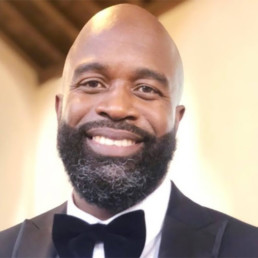
Written by Dwight Weir
Dwight is a Deputy Headteacher and Life Coach. He is also an inspector for British Schools Overseas. Dwight has a passion for coaching and leadership development.
Coaching is the process used to enable the coachee to reach their goals or achieve clarity about their life, whether it’s about leadership development, career change, family, personal development or just managing work-life balance. This blog will focus on coaching as a vehicle for leadership development.
Leadership development training encourages the use of hands-on practical training (Woyach and Cox 1997). The training is more effective if it is context specific (Creasy and Cotton 2004; Barnett 2001 and Kouzes and Posner’s 1995) and engages the use of a mentor or coach (Paterson and West-Burnham 2005) and is personalised (Owen 2007 and Patterson and West-Burnham 2005).
Coaching has played a significant role in my own leadership development journey. As a not so recent participant in one of the UK’s flagship leadership development programmes, we were grouped according to where we lived or worked for group coaching. We participated in many leadership development tasks which involved role playing, presentations, discussions and a variety of simulation activities. Even after almost 10 years since the training, this has been the most effective CPD I have ever had, for a number of reasons but more so due to the dynamic coaching relationship I had with an experienced Headteacher – the experienced other.
Even though I have studied, researched and written about leadership and leadership development, I haven’t had the time to exclusively link coaching theory to coaching practice. Being part of a coaching group propelled me further towards developing my own leadership due to expertise of the experienced other. Having been on this journey, coaching relationships can be likened to a journey with ‘three-selves’; self-discovery, self-realisation and self-actualisation.
At the time of my training, coaching was only a theory for me, group coaching was an even more distant concept. The experience gained as part of the group coaching enabled us to collaborate professionally at an authentic level due to the conventions of group coaching which became apparent throughout the coaching experience. Learnings from the group coaching appears to be performance focus (McGurk 2012) as there was a focus on development orientation, effective feedback, performance orientation and planning/goal setting. From this experience it was evident that the growth expected in group coaching is collective as the outcome will be achieved as a result of the collective sum. Whilst participating in group coaching a number of variables became evident during the process:
- Collective Growth – the collective process we used as a coaching group to develop our ‘virtual school’ (a project within the training) was dependent on a combined effort. This might not be the same for all coaching groups but can be expected when group coaching participants are working towards an agreed outcome, knowing that the progress of the group is dependent on the progress of all.
- Cooperative Reflection – as we developed our virtual school we regularly reflected on our progress and the impact we were having as a team. We always evaluated our efforts with the intention to improve. This was, reflection with a purpose.
- Collective Honesty and Openness – we benefited from this process as we knew that collectively only honesty and openness truly informed each of us on our individual and collective process. The idea that feedback is a gift kept us open to feedback knowing that gifts can be returned or embraced. The relationships that we developed meant that as we fed-back to each other we respected the feedback given, knowing it was honest.
In addition to group coaching we also had one to one coaching sessions. These were particularly helpful as I focused on my own development outside the group and the impact it had within the group. This approach was more intense as the focus was more on the individual and our areas for development. This level of coaching involved powerful questioning, Using ideas, shared decision- making and encouraging problem-solving.
Coaching as part of leadership development is most effective when you are on a journey with an experienced other. Genuine experience in the field helps the experienced other to relate, ask thoughtful, reflective and relevant questions linked to the context in which the coachee works and is developing their leadership.
Effective coaching during leadership development fosters and unearths the ‘three-selves’; self-discovery, self-realisation and self-actualisation.
10 Engaging Diversity Books for Children: Promoting Inclusion and Understanding
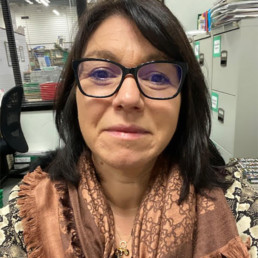
Written by Rachelle Carter
Rachelle Carter is co-director of Madeleine Lindley Ltd, a key children’s book supplier based in Chadderton, Oldham. Its staff are experienced and well-equipped to help primary schools rejuvenate and refresh their class libraries with the latest and most engaging books. The business has played a vital role in supplying many of the UK's primary school libraries for over 35 years.
Reading across a range of cultures and experiences not only broadens children’s worldviews but also nurtures an appreciation of the wider world. Being exposed to a range of books that cover different representations allows children to feel connected and included, and allowing a child to explore various narratives through books through a multitude of narratives is a cornerstone in exposing a child to inclusion and understanding.
Here, children’s literacy specialist Madeleine Lindley Ltd explores ten notable books that celebrate diversity, promote inclusivity, and stimulate the imagination. For primary school teachers, this list can serve as a great starting point from which to build a classroom library or wider school library with books that promote inclusion. It is important to remember that the representation of diversity will differ from classroom to classroom. Use this list to explore the types of books you can consider for your classroom, and explore the broad range of diversity and inclusion books yourself to find the perfect books for your children.
1. Uncle Bobby’s Wedding by Sarah S. Brannen
Uncle Bobby’s Wedding takes a delicate approach to introduce the concept of same-sex marriages. As the story unfolds, young readers journey alongside Chloe, the protagonist who initially fears she will lose her beloved Uncle Bobby when he announces his wedding. The story’s gentle narrative helps children understand that love transcends all boundaries and that families come in all shapes and sizes. Moreover, it instils the idea that a change does not equate to loss, a valuable lesson for children.
2. The Best Me! by Marvyn Harrison
In The Best Me!, Marvyn Harrison promotes the importance of self-esteem and individuality, focusing on the central character’s journey, Nia. Nia learns to embrace her unique identity and sees the beauty in everyone’s differences, breaking away from societal expectations. The book delivers the fundamental message that everyone should feel empowered to be their true selves.
3. The Proudest Blue by Ibtihaj Muhammad and S.K. Ali
The story revolves around Asiya’s first day of school, with her wearing a bright blue hijab. Her younger sister, Faizah, sees Asiya’s hijab as a symbol of pride and strength. The Proudest Blue introduces children to the concept of faith in oneself and the richness of cultural diversity, helping them recognise and respect religious practices that might differ from their own.
4. Grandad’s Camper by Harry Woodgate
Grandad’s Camper presents a loving relationship between Grandad and Gramps. Following Gramps’s passing, Grandad ceases his adventuring until his granddaughter reignites his passion. The book addresses LGBTQ+ relationships and loss sensitively, fostering understanding that love is universal, extending beyond conventional family setups.
5. Speak Up! by Nathan Bryon
Speak Up! is a compelling narrative about using one’s voice to champion what’s right. The protagonist, Rocket, inspires children with her bravery, as she stands up for her community’s park. This story encourages children to be courageous, fostering a sense of responsibility, and motivating them to stand up for what they believe in.
6. Just Like Me by Vanessa Brantley-Newton
Just Like Me is a collection of poetic narratives, celebrating diversity, self-love, and acceptance. Vanessa Brantley-Newton’s character-driven poems encourage children to explore and celebrate their identities, recognising that everyone’s story is unique and equally important.
7. The Bubble Boy by Stewart Foster
The Bubble Boy introduces the character of Joe, a boy with severe combined immunodeficiency who lives in a sterile environment. This narrative fosters empathy, giving children a glimpse into the lives of those living with health conditions, ultimately encouraging them to be understanding and respectful.
8. Jamie: A Joyful Story of Friendship, Bravery and Acceptance by L. D. Lapinski
Jamie paints a picture of an inclusive world where each individual is unique and cherished. The story explores themes of friendship, bravery, and acceptance, helping children appreciate the diverse characteristics that make us all human.
9. Fight Back by A. M. Dassu
Fight Back explores the resilience of a young refugee, teaching children about the realities of displacement and courage. This book encourages understanding of global issues and empathy towards individuals who’ve experienced adversities beyond their control.
10. No Ballet Shoes In Syria by Catherine Bruton
This book captures the experiences of Aya, a refugee girl in Syria who finds solace in the world of ballet. No Ballet Shoes In Syria allows children to empathise with the struggles of refugees and appreciate the power of passion, dedication, and the arts.
Find diversity books for your library
Cultivating an environment that values diversity is an important part of fostering an enriching, inspiring, and inclusive environment for your children. To help you in doing this, Madeleine Lindley Ltd helps curate an inclusive, engaging, and ever-evolving reading environment for your primary school. By filling your library with books that celebrate differences, you are not just introducing children to a multitude of perspectives, but also instilling a lifelong love for reading.
Woke, but not too woke?
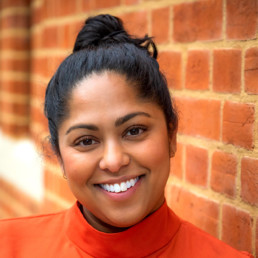
Written by Bilkis Miah
Bilkis brings a powerful perspective to the table, shaped by her upbringing as a British-Bangladeshi immigrant. With experience in both management consulting and the education sector, she offers a rare blend of expertise and cultural insight. Her unwavering commitment to breaking down barriers and challenging norms has positioned her as a powerful voice for change. Bilkis is not just a thought leader, but a driving force for positive impact, inspiring and empowering communities everywhere to re-imagine what is possible.
Inclusivity, or ‘wokeness’ as it’s come to be known, isn’t political correctness gone mad, it’s an essential move for our children.
To see how ‘wokeness’ is perceived in education, you only have to open the newspaper to see that Robert Halfon, Chair of the Education Select Committee, condemned the use of the term ‘white privilege’ last year. Halfon claimed – and this is as much as I can agree on – that there is an ‘opposite reality [to privilege] for the white working class across society’.
But surely this is a question of semantics? Isn’t it more important to make sure we’re not entering a class war, and pitting one group against another? Using terms like ‘white privilege’ isn’t the reason why so many white working-class children are failing. It’s a systemic problem, including underfunded schools, economic inequality, and the lack of opportunities for social mobility.
Understanding communities
So, what’s even more important is that we come up with initiatives and programmes that help future generations. For this to work, it’s important to listen to the community, such as teachers and parents, but also to ask children what they need. We need to understand the context that is breeding such inequalities, and let communities know that their voices are being heard. We’re all complex and layered humans, and there are nuances to navigate. For example, in Tower Hamlets where we’re based, there is a majority British-Bangladeshi and white working-class population. Things like living in an intergenerational home, or having parents who have little or no formal education are real issues that our children have to deal with. When we asked parents what they were worried about, it was the same common theme – they were worried about losing their children to a world they didn’t understand.
But there needs to be impact on beliefs and understanding the community has over these issues. It has to reach communities beyond the school gates, it can’t just be up to teachers. This is where we saw an opportunity to take parents and carers from all backgrounds on a journey to clearer awareness; one that helps communities understand what we mean by diversity and inclusion and to have the tools they need when they come across it in their lives. We do through our home activity kits. The kits encourage families and children to think and learn about themselves and the world around them through fun, paper-based activities. Importantly it doesn’t centre around having digital access – digital poverty in our community is a real obstacle – rather, the focus is on spending quality bonding time away from the screen through activities like journaling, reading and art to name but a few.
Real-world wokeness
Last year we saw St Paul’s Girls School renaming their ‘head girl’ position to ‘head of school’. This may seem like a superficial change, but the reasons behind it are key. And no, this isn’t ‘political correctness gone mad’. It’s really important that we don’t define our pupils by gender, race, religion, sexuality, class or ability. All the stereotypes that come with these narrow categorisations have wider societal implications. By changing the title from ‘head girl’ to ‘head of school’, staff are saying to their pupils, ‘We recognise you, and you can achieve anything regardless of your gender’. It’s not boxing girls into certain roles, or qualifying success with terms like ‘girl boss’ – you’re a boss, period. This is so important when we think about a healthy, diverse workforce for the future. Even in our pilot project, we’ve heard comments from children such as “Boys will have more important jobs as they have bigger brains.” Statements like these may seem inane, but it’s essential to dismantle them as soon as you notice them, so they don’t have the opportunity to entrench further.
Importantly, when you’re talking about making sure to teach about stereotypes at school, and embedding this into school policy, make sure to take families on the journey with you. It never ceases to amaze me how many schools don’t necessarily ask parents the tough questions: ‘What worries you?’, ‘What are your main concerns around teaching about stereotypes?’. Not only does this let families feel heard, but it allows you as the teacher to understand their concerns, and have the opportunity to allay some of those fears. More often than not, parents want the same as you – for their children to have all options open to them.
The Pen and The Community: What a football cage taught me about community
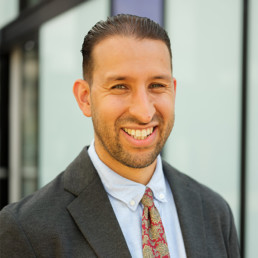
Written by Mohamed Abdallah
With almost two decades of experience, Mohamed started his journey in youth work and pupil referral units before spearheading groundbreaking inclusive practices and systems as a leader in an 'Outstanding' all-through mainstream school. Driven by a relentless commitment to positive change, Mohamed now dedicates his efforts to collaborating with school leaders across the nation as the Head of the Inclusive Leadership Course at The Difference.
“We are meaningful as individuals only through our interconnections”
Alexander and Conrad (2022)
The “success” I experienced as a youth worker, a practitioner in a Pupil Referral Unit, and as a senior leader in mainstream schools has at times been credited to me or my leadership, and that often makes me feel uneasy.
Partly because I experience imposter syndrome on a regular basis. But mostly because everything that “I have achieved” only happened through collective efforts.
It was only achievable because a community of people pooled together their desire, commitment, skills and knowledge to make a difference to the lives of children.
And this is why I don’t believe in individual heroes or saviours.
It sounds like I’m being a little contrary, but I hope that when you get to the end of this post it will be clear that what I am proposing instead is so much more liberating, freeing us from the idea that success is a purely individualistic journey. I think the opposite is true, that the collective efforts are more empowering than the individual endeavours of one.
KEY INGREDIENTS
Most of my childhood and teenage years were spent on Studley Estate in Stockwell. And to this day, that time remains one of the most significant chapters of my life. And it is the sense of community I experienced there which has become an integral part of my identity. It influenced how I grew, how I socialise, how I make decisions, and where I feel a true sense of belonging. It is also where I worked out what my skills and qualities are and helped me develop a wealth of knowledge about my community.
Throughout my life, whether as a child on Studley Estate, a youth worker in the community, or as a senior leader within schools, there are three key ingredients that formed an active and healthy community which stood out for me. These three ingredients are: DISCOVERY, COLLABORATION and ACTIVITY
Let me share their significance using a personal example from my childhood.
THE PEN
The Pen, the football cage right in the heart of our estate.
Discovery
As a child, I discovered a community of children who played regularly in the Pen and shared the same passion for football. It became our meeting point after school and on weekends, it fulfilled our need for play and socialisation through football. The discovery of the Pen and our shared love for football became our major connection.
Within our little community of talented footballers, we recognised and celebrated our differences. Some of us supported different teams (I’m a lifelong Liverpool fan), but our shared passion for football forged a bond that transcended those differences. We had an instant connection, rooted in our passion and knowledge of football and our ability to play the game.
Each of us brought something unique to the table. I play as a defender, and that was a valuable asset in a team full of players who wanted to play in attack. We recognised the unique skills and qualities that every player brought which in turn helped us create a space where everyone felt safe, where a shared passion and a common purpose thrived. We discovered our purpose, to have fun through the medium of football.
Collaboration
Looking back, reflecting on us as young children, it was incredible how well we collaborated with one another. We organised ourselves into teams, we agreed on how long a game should be, and we always accepted the result of a game without any adult involvement.
The centre of the Pen became our arena for collaboration, where we waited until everyone who wanted to play had arrived before selecting teams. It was a joint effort, facilitated by everyone present in The Pen at that moment. We recognised that each person who joined us was not only a football player but also an active agent in creating the ideal space for play.
We understood, even at a young age, that leadership could emerge from anyone, regardless of age, background, or footballing ability. We acknowledged the leadership potential within us all.
Activity
And then, we played, we mobilised our assets into collective activity.
We acted collectively in our game, where there was fairness, equity and trust. And though the game was always competitive, we always prioritised fun. Without the intervention of adults, we treated each other with mutual respect, accepting the game’s outcome and naturally resolving any conflicts that arose.
This collective activity involved every single one of us, as we recognised that to play a game of football it required the collective participation of all of us.
We discovered each other and our assets, collaborated in shaping teams, what type of game we would play, and engaged in the activity of the game in a way that was organic and purposeful.
COMMUNITY
These key ingredients can work for any community, including school communities.
Discovery is at the heart of every strong community.
It means discovering how and where people may have a sense of belonging, forming friendships, and feeling supported in their growth and development, discovering their own assets and capabilities. It’s about discovering spaces where people can come together, share their experiences, and provide a nurturing environment for children.
Opportunities to discover spiritual connection, helping people to collectively share values, wisdom, their gifts and connect to much needed resources, services, and opportunities for personal and community development.
When we foster genuine discovery which lead to connections among different groups, we create a tapestry of relationships that weaves us closer together.
Collaboration is essential for community growth and progress.
It means working together on projects, initiatives, and events that have a positive impact on people’s lives. Sharing skills, knowledge, and experiences, and creating a collective pool of wisdom and expertise. Collaborating contributes to the support of one another, exchanging ideas that work toward common goals addressing social issues to promote inclusivity, and create a sense of unity.
When we collaborate, we tap into the diverse strengths of our community and achieve outcomes that are greater than what any individual or group could accomplish alone.
Activity is about taking collective action and empowering every individual within the community to contribute to its well-being and success. It means staff, children and families being active participants in decision-making processes, having their voices heard, and realising their potential as change-makers.
They can collectively act by engaging in volunteerism, advocacy, and community-building activities alongside the local community. Acting together can foster a culture of empathy, respect, and social responsibility within school communities. And in turn promoting social justice and supporting those in need by empowering them through their assets. Most importantly a school and local community taking ownership of their community’s future.
When we act collectively, we create a sense of agency and shared responsibility, leading to a stronger, more resilient community.
BY THE COMMUNITY
To be a community member is to care, to take responsibility, to acknowledge your collective power.
To be a community member is to cultivate meaningful connection to the numerous relationships and institutions on our doorstep.
So, I want to return to where I started.
Our communities are shaped by our interactions, our relationships, and the wisdom we share with one another. When we achieve something, it is because we have worked with others, supported one another, shared resources and acted together.
And this is why I don’t believe in individual heroes, whether they are people or institutions. Because it is the collective efforts of many that is heroic. It is our collective power that creates sustainable change.
Not a single person.
It requires collective risk taking to effect change. It doesn’t happen overnight, it takes time, but it is sustainable. It is designed by the community; it is done by the community, and it is sustained by the community.
If you are curious to learn more about Drawbridge and how we can help schools foster meaningful community engagement? Feel free to reach out to me at mohamed@drawbridge.org.uk.
Navigating School Life
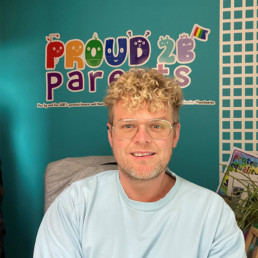
Written by Matt Taylor-Roberts
Matt Taylor-Robert (He/Him) is the Founder and Managing Director of Proud 2 b Parents and with his husband, Matt is an adoptive parent to their amazing son. He feels privileged to work for a regional adoption agency as an independent panel member and has previously worked for an independent foster agency within the same role. However, he had to step away from this role due to becoming a foster carer for this agency. Matt has previously worked within Children's Services for a local authority. To find out more about Proud 2 b Parents please head over www.proud2bparents.co.uk.
As a gay dad, I embarked on a remarkable journey when my child entered school. From the early days of reception to the transitions and milestones of Year 1, I’ve witnessed firsthand the joys, challenges, and triumphs of being an LGBTQ+ parent in the educational system. I therefore wanted to share my experiences, insights, and reflections, shedding light on the unique journey of a LGBT+ parent navigating their child’s schooling.
From the first day of reception, I was determined to create an inclusive environment where my child would thrive. I approached the school teachers, emphasizing the importance of embracing diversity and promoting acceptance among all. I was pleasantly surprised by their open-mindedness and commitment to fostering an inclusive atmosphere. They then looked to me to answer their questions and point them in the right direction of equity and inclusion.
Throughout the early years of schooling, I discovered the significance of building strong relationships with teachers, other parents, and school staff. By being open about my family’s structure, I paved the way for understanding and acceptance. I actively engaged in school activities, volunteering my time and participating in parent-teacher meetings to establish connections and develop a sense of community. I, myself, joined the board of governors, while my partner became the chair of the PTA, ensuring we echoed the ‘normality’ of our family.
As my child progressed through reception and Year 1, I encountered occasional misconceptions and stereotypes surrounding LGBTQ+ parenting. I sometimes took these opportunities to educate and enlighten, sharing our family’s story and dispelling any doubts or concerns. Other times I was exhausted from educating others in the playground and just wanted to stand quietly in the rain, waiting for my ‘baby’ to finish school for the weekend.
Fortunately, my child has not faced overt bullying or bias but we have heard comments such as ‘why do you have two dads’, ‘are they your two dads’ and he has always been the child used for ‘every family is different’.
In Reception and Year 1, schools often organise events and activities that celebrate families, we always ensured one of our son’s parents were there to represent his family and that he had a cheering face in the crowds. We went to ‘Mother day or special person day’ events and planted seeds and enjoyed afternoon tea, as well as engaging in ‘fathers day’ sports activities.
We always felt that collaborating with teachers was pivotal to ensuring my child’s educational experience was positive and affirming. Regular communication, sharing important milestones, and addressing any concerns or questions were key aspects of this partnership. By fostering a strong parent-teacher relationship, we ensured our child received the support they needed to flourish academically and emotionally.
Looking back on the last two years of my child’s journey through school, I’ve witnessed the power of acceptance, education, and collaboration in creating an inclusive environment. While challenges may arise, embracing diversity, building relationships, challenging assumptions, and advocating for inclusivity have proven transformative.
By sharing my experiences, I hope to inspire other LGBT+ families to approach their child’s school journey with confidence, knowing that their unique perspectives and experiences contribute to a more accepting and inclusive educational environment for all.
‘I’m so glad we have one of you here!’
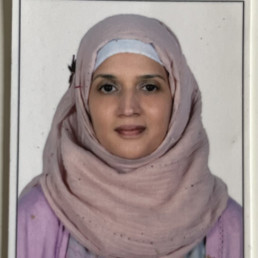
Written by Nabiha Mohamed
I am a British born Muslim Pakistani Geography teacher, who loves rocks and the Marvel Universe. I have spent 13 years living in Abu Dhabi but have now returned to the UK and am living in Bristol. I have taught in both comprehensive and independent schools, both of which I have enjoyed very much. I am a creative being who overthinks everything! I love to learn, and I have recently woken up to the fact that I am one of the few teachers of colour in this country and am now feeling the responsibility of this weighing heavy on my shoulders. Keen to ‘make a difference’ in the schools, I would love to connect with other teachers of colour in the UK.
We have been hit with comments like these throughout our lives. We have become accustomed to these ‘microaggressions’ in every aspect of our daily routines, and by ‘we’, I mean, people of colour.
As a British Asian Muslim woman (that’s a lot of labels already) born and raised in this country, I had never heard of the term ‘microaggressions’, until about 2 years ago in a CPD session at school. It was a turning point for me, in my career and my personal life. I have since been educating myself around the topics of unconscious bias, microaggressions and sense of belonging, particularly in schools. It’s been a rollercoaster ride since then, highs and lows in my teaching career, in my understanding of the issue and trying to work out how best to teach students to be assertive and staff to be ‘awake’. I am no professor in this area, I am not perfect, but I have grown to become passionate about this topic as one I can relate to and hopefully, an area I can help change in schools.
I have come to realise that many people who fire microaggressions at you, are often wonderful, kind, well-meaning people. They just don’t think about the gravity of their words; if you did have the courage to call them out on their inappropriate comments, they would be utterly devastated, which also makes us hold back on speaking up. Three recent examples I can think of (all said by adults):
- I can never learn the names of the girls who wear hijabs, they all look the same.
- I’m so glad we have one of you here now at school, the kids really needed someone like you.
- I loved culture day; it was my favourite day of the year! I loved all the costumes students wore; they were beautiful.
Costumes? I don’t wear my salwar kameez on Halloween, love.
I have delivered CPD sessions and assemblies on Unconscious Bias and Microaggressions to both staff and students recently, with the aim to give students of colour the confidence to speak up and say, ‘that’s not okay’ and to educate teachers on what many of their students go through daily as they go about their lives.
The thing is… I said in my assembly that I promised myself, whenever anyone was to say anything inappropriate directed at me, I would speak up and tell them. If ‘we don’t do this’, I said, ‘things will never change.’ Did I speak up when the above microaggressions came my way? Shamefully, no I did not. WHY, oh WHY did I not say anything?! Because, they were all lovely people who didn’t mean any harm. Because I, aged 47, did not know how to handle the situation at that exact moment, and if I couldn’t, how could I expect a child to?
However, I want to break the cycle. I want to have the confidence to say ‘errmmm, no’, and I want to teach students to be able to do the same in a respectful way, but I don’t know how to. We have school policies on explicit racism but there is nothing in means of reporting the implicit microaggressions from students or staff. Should there be? Is there a need? Do we ask our EDI Leader to speak to the guilty ones or should we have the guts to do it ourselves? But the interesting, or annoying thing amongst these questions in my head is, why am I struggling to speak up like I am the guilty one? I haven’t done anything wrong.
Exciting changes in the English Curriculum
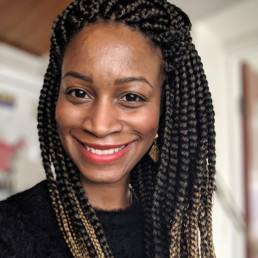
Written by Samantha Wharton
Samantha is a seasoned educator from East London, with ancestral roots tracing back to the Caribbean nations of Antigua and Guyana. She brings a wealth of academic achievements, including a degree in Communications and Media from Brunel University, a PGCE in English and Drama from the Institute of Education at University College London, and an MA in Black British Literature from Goldsmiths University.
English teacher Samantha Wharton takes us through some of the exciting changes to the English curriculum – featuring stories of the Windrush generation.
As well as it being the monumental milestone of 75 years since the Windrush ship docked at Tilbury forever changing the fabric of the nation; this year 2023, also marks significant changes in the English curriculum. For the first time, two playtexts by Black British female writers will feature on the English specification across three exam boards! AQA, Eduqas and OCR have added Leave Taking by Winsome Pinnock and The Princess and the Hustler by Chinonyerem Odimba to their collection of texts for examination in 2025 (available to teach THIS September).
The play Leave Taking is considerably significant in its relations to the Windrush as the writer Winsome Pinnock foreshadows some of the issues that later arise in the 2018 Scandal. The play written 1997 and produced at the National Theatre (marking the first black female playwright to have a production in this space) tells the story of Enid – a woman in her forties that arrived in England during the Windrush era. She raises her two daughter’s Viv and Del in this new British landscape where she navigates some of the challenges of being Black in Britain. I believe this is a wonderful play that documents an important story that needs to be heard. It is part of our shared British recent history. It shares the universal themes of migration, parent child relationships and belonging. It’s a text that is accessible to all GCSE students and a play that young people will relate to – especially the parent/child clashes and expectations that parents have for their children.
This is a huge change in the curriculum and one that I feel is much needed. As a teacher of 18 years I have seen many changes in the curriculum that to some extent have narrowed the world scope for young people, especially those that do not read independently. There was very little to no diversity reflected in the texts available at GCSE in particular so this is incredible. I am excited to be teaching this play at my school: St Angela’s Ursuline in London, where we will be part of a pioneering group to teach this text in the first year of official study!
I believe that diversity in literature and a range of texts help to foster a love of reading. Generally, readers like to make observations about others and escape to new places through literature. Novels are our gateway to other cultures and ways of life that we may not be able to physically be a part of. It is important that students have this exposure to different texts within the classroom and not just as part of reading for pleasure.
I was also fortunate to be commissioned by Nick Hern Books alongside Lynette Carr Armstrong to create a study guide for Leave Taking. Combined we have over 50 years of teaching experience and have created a resource that will support the learning of this text for students and will also provide a source for teacher’s planning to teach this text in the future.
I encourage teachers, parents and young people alike to engage with these stories! They are an important part of our history and need to be heard!
For access to Leave Taking (play and guide) as well as AQA conversations for teachers see the following websites:
Text: https://www.nickhernbooks.co.uk/leave-taking
Study guide:https://www.nickhernbooks.co.uk/leave-taking-gcse-student-guide
AQA: https://www.aqa.org.uk/professional-development/search?f.Themes%7CV=Spark
The Power of Networking

Written by DiverseEd
Diverse Educators started as a grassroots network in 2018 to create a space for a coherent and cohesive conversation about DEI. We have evolved into a training provider and event organiser for all things DEI.
#DiverseEd Table Photo
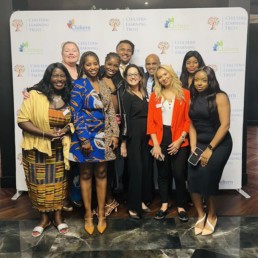
This Friday night we joined the team at Chiltern Learning Trust for their annual Racial Equity Network Dinner (#REND). We had been unable to make it the last two years running despite really wanting to attend and support it, but this year we were able to make it happen.
We sponsored a Diverse Educators’ table and invited some of our collaborative partners from the race section of our DEI DIrectory to join us on our table. It was brilliant to finally all be together in person! It is not very often we are in the same room, at the same time – the energy was palpable and we were very much the ‘naughty table’ as we needed to take advantage and connect whilst we could.
Thanks for joining the team from #DiverseEd:
- Nadine from Aspiring Heads
- Rhia from Black Teachers Connect
- Jemma from Let’s Start a Conversation Today
- Aretha and Youlande from Mindful Equity
- Louise and Marcus from MixEd
Getting to Luton for 6pm on a Friday night, at the end of a long year and a hard term, was not for the faint-hearted. Our table travelled from Manchester, Nottingham, Birmingham, Watford, London, Kent, the New Forest and Bath to attend the event. The journey to the event is very much a metaphor for the direction of travel of the work – it is non-linear, frustratingly slow and there are lots of obstacles to navigate including poor conditions and route closures.
We were delighted to be in the room where it was happening, along with 480 other attendees, who all care about and are committed to affecting change when it comes to racial equity in the education system. We had a lot of other connections and collaborative partners at the event including:
- Diana from the Academy of Women Leaders
- Frankie from BAMEed SEND
- Albert and Johnoi from Black Men Teach
- Iona and Sam from Edurio
- Daryl from Flair
- Paul and Andrea from the Institute for Educational and Social Equity
- Penny from The Linking Network
- Bukky, Flora, Yamina, Kiran and Emma from #WomenEd
In the more formal part of the event before the eating and networking started, there were a series of short presentations from a range of speakers:
- Sufian Sadiq – shared a heartfelt reflection on the fatigue and frustration of how slow the rate of change in this work is for him, his peers and his family. His call to action was for solidarity.
- Professor Paul Miller – shared the systemic data to highlight the structural and societal barriers for people of colour in our sector. His call to action was for allies to leverage their power.
- Sarah Owen MP – shared a personal narrative of being a biracial pupil and how this work could have helped her journey as a pupil but also now as a politician. Her call to action was to create greater belonging.
- Dr Patrice Evans – shared a quote from Obama and reflected on her journey being the only black woman in many spaces. Her call to action was to collect the stones and to use them to build empires.
- Hannah Wilson – shared her awareness of being a white person speaking to a room of global majority and then used the space to amplify the organisations in the room doing brilliant work in this space. Her call to action was to join the coalition.
- Assistant Professor Derron Wallace – shared a comparative lens to the data and the activity in the US compared to the UK and questioned what our collective strategy for racial equity is. His call to action was that everyone needs to own the role they have to play.
In the less formal part of the evening it was great to see, chat to and smile across the room at Alison from CCT, Mary from Myatt and Co, Tom from Ambition School Leadership, Phillippa and Sajid from PACT, David and Ena from Venturers Trust, James and Sharon from Inclusive MAT, Antonia and Bhamini from Pioneer Educational Trust, Adam from OTSA, Thahmina and Omar from CST, amongst others.
#REND is a brilliant example for the power of networking. The event was a magnet for people seeking a shared vision, a unified purpose, a collective agency. Together we are stronger, and we can go further.
Do check out the social media posts via the event hashtag #REND and put the draft date for the 2024 #REND event in your diaries: Friday 12th July. We will have a table there again and will invite new partners from our DEI Directory to join us. It would be great to see you there and they are increasing capacity to 600 for next year’s event.
DEI Directory Flyer
